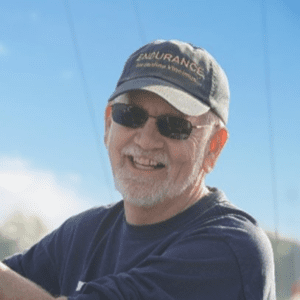Kevin McGhee, Director of U.S. Engagement, Converge
We planted a church outside Washington D.C. in 1986 and led it for 32 years. Our church was known for several good things such as our 1 to 1 discipleship process and our community engagement - but what we are most known for is that 1/5 of our congregation was Deaf. We had many faculty and staff members from Gallaudet University attend. Deaf people are the most unreached people in the U.S. and in every location on the globe. Roughly 98% of Deaf people globally have zero access to the gospel. So, I share this background because our work among Deaf peoples led my friend Ivan Veldhuizen (who leads Converge International Ministries) to invite me to join his team. Initially, our conversations were about reaching Deaf people everywhere. This aligns powerfully with the Converge vision: We are asking God for a gospel movement among every least-reached people group in our generation.
Prior to my joining Converge, Ivan and my conversations evolved because so many churches do not fully engage in the whole of the Great Commission. Often, missions is more of an afterthought than a main focus. So, together, we developed a plan to birth what we now call the U.S. Engagement Team.
Current Mission:
I serve on the Executive Team of Converge International Missions. My boss who leads the mission has 3 direct reports: one directs overseas operations, one oversees our mobilization department, and me. I lead church and donor relations along with our Deaf work. The teams/ leaders that I oversee have 5 core functions:
Coaching - we have 4 staff coaches and nearly 20 volunteer coaches who help churches move effectively towards the nations.
Connecting - we have 2 staff members who work full-time connecting our churches to our global workers and to each other. They also have primary responsibility for working with our 10 Converge district staffs, putting on regional and national events, and most importantly, overseeing the networks of churches that have now birthed 21 different prayer networks for all of our initiatives.
Communicating - We work closely with the marketing and communications leaders in the national office and in our district offices to invite churches and individuals into meaningful relationships with our missionary teams.
Capital - Converge International Ministries has run for years on a shoe-string budget other than the funds raised for individual missionaries. We now have a professional development person on our staff, as well as a former Naval officer working with me to build a development team. We seek to help our financial partners discover the great opportunities there are to invest in fulfilling the Great Commission in our lifetime.
Deaf - We now have 9 people on our Deaf ministry team (not counting me) - 3 are Deaf, one is hearing but grew up with Deaf parents and grandparents, and the others are certified interpreters on top of being great leaders. Our team is at the forefront of global Deaf ministry and have played prominent roles in equipping other mission agencies in Deaf ministry vision and practices.
As you can see, there is a lot going on - and that this was all birthed in just four years is evidence that our Heavenly Father's heart is for those who have never once heard the name of Jesus. We experience his favor every day. To be fully transparent, after a long run as a lead pastor, I never expected that the most fruitful season of my life would be now ... but it is by far.
Biggest support needs:
My biggest support needs are for work funds that allow me to travel. It is essential that I have a great working relationship with those on the field (whom we gather for regional meetings) so that our team can clearly articulate what God is doing through them to potential partners.
Special Challenges:
One big challenge in addition to the above is finding financial support for our Deaf workers. They don't have the financial resources that hearing folks do (among their contacts) because most deaf people in the US - even with degrees - are under-employed or are living on disability income.

